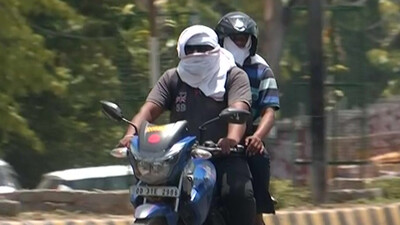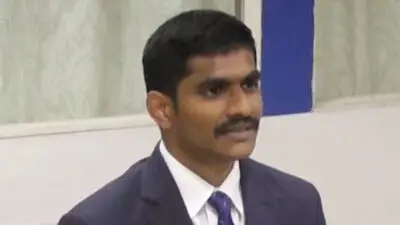Recommended Stories
By Sandeep Sahu
The impending hanging of the four convicts in the Nirbhaya case has got the human rights lobby back in business. Calls for sparing the four convicts the death sentence, though muted at the moment, is beginning to gather momentum – as they typically do when anyone is about to be executed. Senior Supreme Court lawyer Indira Jaising has set the cat among the pigeons urging Asha Devi, the mother of Nirbhaya, to emulate the example set by Sonia Gandhi and ‘forgive’ the rapist-killers and request the courts to convert the death sentence into a life sentence. Asha Devi has expectedly rejected her plea. But the episode does raise a few important questions that need to be answered once and for all.
The first – and the most important – of these questions, of course, is whether human rights have any limits? How far can we go in upholding the human rights of dreaded killers? The death penalty has been challenged in the Supreme Court in the past and the apex court has unequivocally ruled that there is nothing unconstitutional about it. So, what exactly is the fuss about? The fact of the matter is the death penalty is in the statute books. And if it is not going to be invoked for the beasts who brutalized Nirbhaya on a cold December night in Delhi, what is it doing in the books? Can there be a more deserving case to invoke the death penalty than this? The argument that there is no evidence to suggest that it works as a deterrent may be something to discuss about in the larger debate on whether the death penalty should be abolished, but is completely irrelevant here.
Let me make it clear that I am opposed to the death sentence in principle and in favour of converting it into life sentence even if the convicts are terrorists or dreaded killers. Like the votaries of human rights, I too genuinely believe that life sentence is a greater punishment than a death penalty because the convict would be made to suffer every moment of the rest of his life. But where I differ with them is in the definition of the term ‘life sentence’. A life sentence in cases of the ‘rarest of rare’ kind, in my view, should mean a life sentence in the truest sense of the term, which means no parole, no curtailment of sentence because of ‘good conduct’, not even permission to attend a funeral in the family. Once jailed, only the dead body of the convict should come out of jail. That would serve the ends of both justice and human rights.
But try telling that to the absolutist human rights lobby! I have absolutely no doubt that they would be horrified at the suggestion and promptly dub it ‘barbaric’ and ‘uncivilised’– just as they are terming the death sentence now. It is this doctrinaire adherence to the principles of human rights that has given them such a bad name. The way the four Nirbhaya convicts have been making a mockery of the justice system in their desperate effort to delay the inevitable, the patience of the nation and their trust on the criminal justice system is running out fast. We have already seen how exasperated the people are in the reaction to the ‘encounter’ of the four Hyderabad rapist-killers late last year. If the human rights lobby refuses to read the writing on the wall and keep pressing ahead with their doctrinaire espousal of the cause of human rights, they would be doing a great disservice not only to the nation but to their own cause as well. For it would erode whatever little faith the people have in the justice system and encourage them to take the law into their hands – hardly a welcome prospect.
The second question thrown up by the continuing stalemate over the hanging of the Nirbahaya rapist-killers is: should a person (s) convicted and sentenced to death in a ‘rarest of rare’ case have the option of seeking mercy? My considered view is “No’. Once someone has been convicted in such a case and the death penalty against him is upheld by the Supreme Court, where is the question of any mercy? After all, the death sentence is not given to any ordinary criminal, but only to those who have exhibited brutality and bestiality of the worst kind. It can be nobody’s case that the apex court would award death to someone without giving him enough opportunity to prove his innocence, can it? In fact, the outrage has been over the fact that they are given far too many opportunities even in open and shut cases like Ajmal Kasab. So, as far as I am concerned, no review petitions, no curative petition and certainly no mercy petition for such convicts. We must not forget that the Supreme Court upheld the death sentence against the four brutes back in May, 2017. Thus, they have already lived on borrowed time for far too long. It is this inordinate delay that is driving people into exasperation and we can ignore it only at our own peril.
The third important question is: should the convict’s family have the option of pardoning the convict and make a case for the death sentence to a life term? My own view is an emphatic ‘No’ because it makes a mockery of the entire judicial process. Why waste energy, resources and – most important – the precious time of the courts in going through the tortuous process of trial through the various courts, which can typically take several years (and even decades in some cases) if at the end of it all, the victim’s family decides to show magnanimity and seeks sparing the convict the gallows? Even the victim’s parents shouldn’t have such a right because they did not ‘own’ their child. The only person who has the tight to ‘forgive;’ is the victim himself/herself. But since there is no way of ascertaining from him/her whether s/he wants to forgive the killers (since s/he is already dead), no one else should have that right either.
Let us not forget that even the fundamental rights guaranteed by the Constitution, which are at the core of the Indian democracy, are not absolute and are subject to reasonable restrictions. So how can human rights be absolute and unfettered?
(DISCLAIMER: This is an opinion piece. The views expressed are the author’s own and have nothing to do with OTV’s charter or views. OTV does not assume any responsibility or liability for the same)













